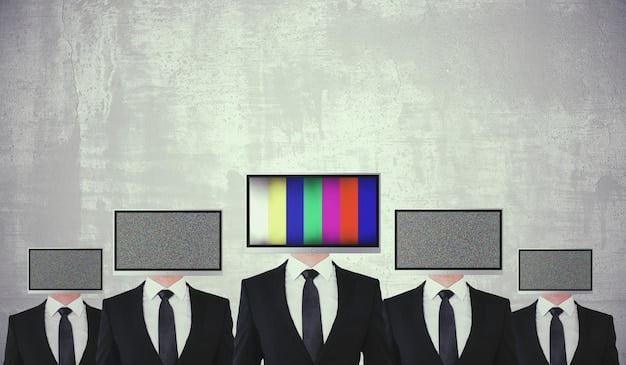The Great Meme War of 2025: How Memes Became Political Weapons

The Great Meme War of 2025 marks a turning point where internet humor evolved into a potent political force, influencing public discourse and shaping electoral outcomes in unprecedented ways.
Get ready to explore the unsettling yet unavoidable reality where internet jokes morphed into a serious battleground that shaped our political landscape forever in the Great Meme War of 2025: When Internet Humor Turns Political.
The Rise of Meme Warfare
The internet has long been a playground for humor, a place where memes are born and spread like wildfire. But what happens when these memes, initially harmless jokes, become weaponized for political gain?
The Great Meme War of 2025: When Internet Humor Turns Political illustrates just that—a shift where online culture became deeply intertwined with real-world politics.

Meme Origins and Evolution
Memes have humble beginnings, often starting as inside jokes or relatable content. However, their ability to spread rapidly and be easily modified makes them prime candidates for political manipulation.
How did these innocuous jokes turn into tools of influence?
The Turning Point: 2024 Elections
The 2024 elections served as a critical turning point, offering a glimpse into how memes could be strategically used to sway public opinion. Political campaigns began to recognize the power of viral content.
What strategies did they employ to leverage meme culture for their advantage?
- Targeted Meme Campaigns: Political groups started crafting memes tailored to specific demographics, tapping into niche interests and sentiments.
- Astroturfing Efforts: Covert operations were launched to artificially amplify certain memes, creating a false sense of widespread support.
- Misinformation Spread: Memes became a vehicle for spreading disinformation, often disguised as humor to make it more palatable.
The evolution of memes from simple jokes to sophisticated information warfare tools marks a significant chapter in digital history.
Strategies and Tactics in Meme Warfare
In the Great Meme War of 2025, both grassroots movements and established political entities employed a diverse range of tactics to influence the narrative.
Understanding these strategies is crucial to comprehending the scale and impact of meme warfare.
Emotional Manipulation
One of the most effective tactics was leveraging emotional manipulation. Memes that evoke strong emotional reactions, whether positive or negative, tend to spread more rapidly.
How were emotions used to drive meme engagement and political messaging?
Exploiting Tribalism
Political memes often exploit tribalism by reinforcing in-group identities and out-group biases. This technique can create deep divisions and stoke animosity between different groups.
What are the ethical implications of using tribalism in meme warfare?

- Satire and Parody: Satirical memes were used to mock opponents and highlight perceived flaws, often with a comedic twist.
- Fear-Mongering: Scare tactics were incorporated into memes to create anxiety and urgency around specific political issues.
- Character Assassination: Memes were deployed to tarnish the reputations of political figures through ridicule and false accusations.
The deployment of these strategies had significant consequences, shaping public perception and influencing political outcomes.
The Impact on Political Discourse
The inundation of political memes profoundly altered the nature of public debate, often simplifying complex issues and promoting echo chambers.
The Great Meme War of 2025: When Internet Humor Turns Political shows how this evolution impacted political discourse.
Simplification of Complex Issues
Memes, by their very nature, require brevity and simplicity. This can lead to the oversimplification of complex political issues, reducing debates to easily digestible sound bites.
How does this simplification affect voters’ understanding of crucial topics?
Rise of Echo Chambers
Social media algorithms often promote content that aligns with users’ existing beliefs, creating echo chambers where people are primarily exposed to reinforcing opinions.
What role do memes play in reinforcing these echo chambers and polarization?
- Decreased Nuance: The meme format often struggles to convey nuance, leading to misunderstandings and the erasure of middle ground on issues.
- Increased Polarization: The use of tribalism and emotional manipulation in memes exacerbates political divisions, pushing people further into opposing camps.
- Decline in Civil Discourse: The humorous or aggressive nature of memes can erode civil discourse, making constructive conversations more challenging.
The changes brought about by meme-driven discourse have lasting implications for political engagement and civic participation.
Ethical Considerations and Challenges
The use of memes as political tools raises several ethical questions about acceptable tactics, misinformation, and manipulation.
The Great Meme War of 2025 highlights the challenges of balancing freedom of expression with the need for accurate and responsible information.
Misinformation and “Fake News”
One of the most significant ethical challenges is the spread of misinformation through memes. False or misleading information can quickly go viral, shaping public opinion based on falsehoods.
How can we combat the spread of “fake news” within meme culture?
Manipulation and Propaganda
The intentional use of memes to manipulate public sentiment or promote propaganda poses serious ethical concerns. Such tactics can undermine democratic processes and public trust.
What regulations, if any, should be put in place to prevent meme-based manipulation?
- Transparency and Disclosure: Requiring political campaigns and organizations to disclose when they are sponsoring or creating memes could increase accountability.
- Media Literacy Education: Educating the public on how to critically evaluate memes and identify misinformation can empower individuals to make informed decisions.
- Platform Responsibility: Social media platforms could take a more active role in flagging and removing memes that contain false or misleading information.
Addressing these ethical considerations is essential to ensure that meme culture remains a positive, rather than destructive, force in politics.
Counter-Strategies and Defense Mechanisms
As meme warfare has become more sophisticated, individuals and organizations have developed counter-strategies and defense mechanisms to combat manipulation and misinformation.
These efforts range from grassroots activism to technological solutions.
Fact-Checking Initiatives
Fact-checking organizations have expanded their efforts to debunk false or misleading claims made in memes. These initiatives help provide the public with accurate information.
How effective are these fact-checking efforts in curbing the spread of misinformation?
Grassroots Activism and Humor
Some activists have adopted meme culture as a means of countering propaganda and promoting alternative narratives. By creating humorous and engaging content, they can reach wider audiences.
What role does humor play in combating the negative effects of meme warfare?
- Meme-Debunking: Creating memes that directly counter false claims made in viral content can help set the record straight.
- Promoting Critical Thinking: Encouraging people to question the sources and motivations behind memes can increase media literacy.
- Building Online Communities: Forming online communities that share accurate information and support critical discourse can create a more robust defense against manipulation.
These counter-strategies are crucial for maintaining a healthy and informed online ecosystem.
The Future of Memes in Politics
Looking ahead, the role of memes in politics is likely to continue evolving, with new technologies and platforms shaping how they are created, shared, and consumed.
The Great Meme War of 2025: When Internet Humor Turns Political offers a sobering preview of what’s to come.
AI and Meme Generation
Artificial intelligence tools are becoming increasingly sophisticated at generating memes, potentially automating the creation of targeted political messages.
What are the implications of AI-generated memes for political discourse?
Emerging Platforms and Formats
New social media platforms and content formats are constantly emerging, each with its own unique meme culture and potential for political influence.
How will these emerging platforms shape the future of meme warfare?
- Deepfakes and Synthetic Media: The rise of deepfakes could further blur the lines between reality and fiction, making it even more challenging to identify misinformation.
- Augmented Reality (AR) Memes: AR technology could create immersive and interactive meme experiences, potentially amplifying their impact on users.
- Decentralized Social Networks: Decentralized platforms could offer greater resistance to censorship and manipulation, but also pose challenges for content moderation.
As technology advances, it will be essential to develop new strategies and ethical frameworks to navigate the evolving landscape of political meme warfare.
| Key Point | Brief Description |
|---|---|
| 💡 Meme Warfare Rise | Memes evolved from jokes to political tools. |
| 🛡️ Defense Tactics | Fact-checking and counter-memes fight misinformation. |
| 🤖 AI Influence | AI automates meme creation, raising ethical concerns. |
| 🌐 Echo Chambers | Memes reinforce existing beliefs, increasing polarization. |
FAQ Section
▼
The 2024 elections highlighted memes political influence, leading to increased strategic use and manipulation. Parties began to recognize the power of viral content for swaying voters.
▼
Memes that evoked strong emotional reactions, whether positive or negative, spread more rapidly. Fear-mongering and satire were common tactics. These emotional strategies drove engagement and political messaging.
▼
Meme warfare simplifies complex debates, often reducing them to sound bites. It exacerbates polarization by reinforcing echo chambers. This makes constructive, nuanced discussion more difficult.
▼
Ethical issues include spreading misinformation, manipulating public sentiment, and deploying propaganda. These can undermine public trust and democratic processes, requiring careful oversight and media literacy.
▼
Defense strategies include fact-checking, grassroots activism, and meme-debunking. Online communities that promote critical thinking and accurate information play a vital role resisting manipulation.
Conclusion
The Great Meme War of 2025 underscores the profound impact of internet humor on political discourse. While memes offer a creative outlet for expression, their weaponization poses significant ethical and societal challenges that demand innovative solutions and heightened vigilance.






